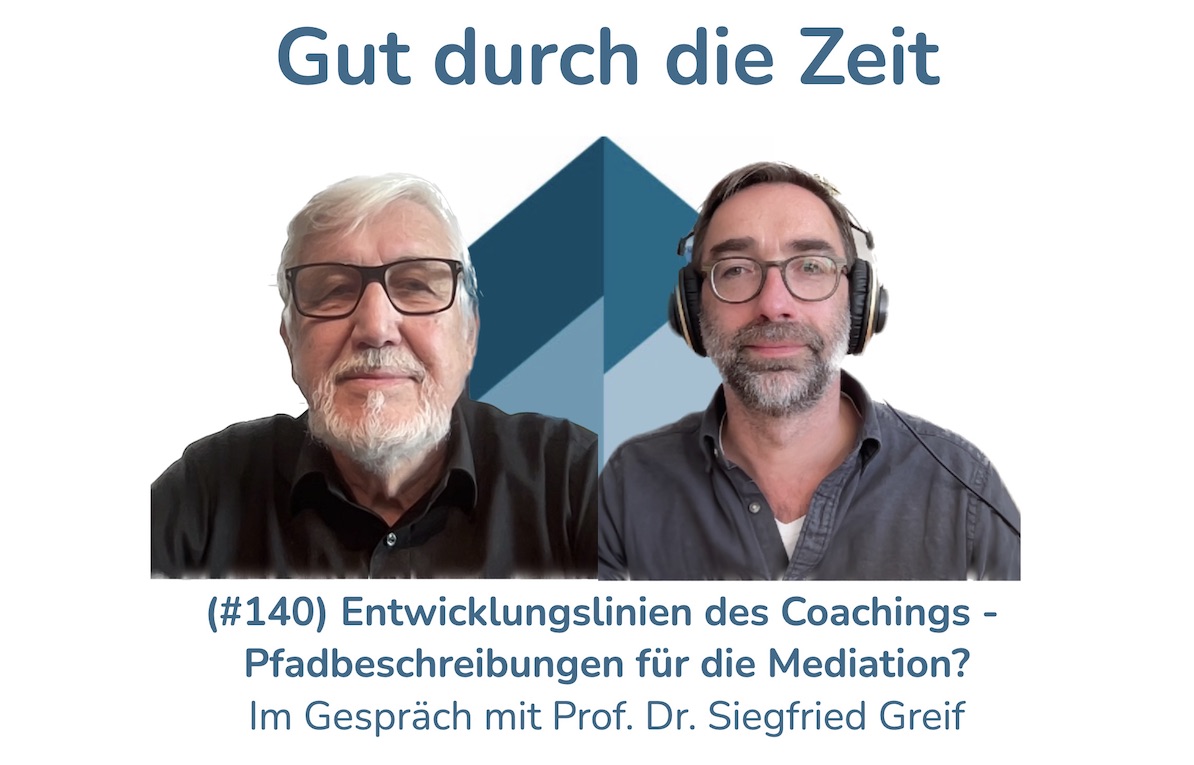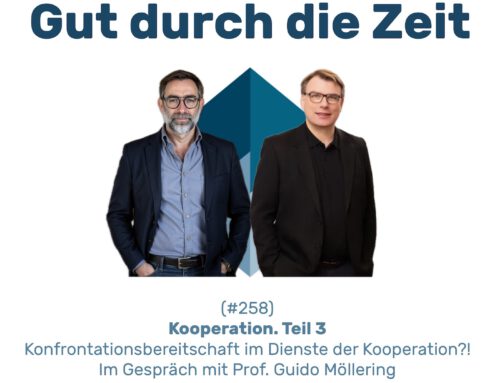INKOVEMA Podcast „Well through time“
#140 – Lines of development of coaching – Path descriptions for mediation?
What can the mediation movement learn from the development of coaching? In conversation with Prof Dr Siegfried Greif
Well through time. The podcast about mediation, conflict coaching and organisational consulting.
Prof Dr Siegfried Greif is Managing Director of Coaching and Management Consultancy at the Institute for Business Psychological Research and Consulting GmbH (IwFB), Osnabrück. In addition to his extensive research in the field of business psychology, including change management, his book "Coaching und ergebnisorientierte Selbstreflexion. Theorie, Forschung und Praxis des Einzel- und Gruppencoachings" (ISBN: 978-3-8017-1983-8), he has established himself as a leading figure in German coaching psychology research. He presented his model for discussion at the DBVC Coaching Congress 2008.
Contents:
Lines of development of coaching
Since the 1980s, the coaching market in Germany has developed and professionalised enormously. Some key aspects of the development of the coaching market in Germany are outlined below:
Early phase (1980s-1990s)
Beginning popularity: The concept of coaching began to gain popularity in Germany in the 1980s, inspired by developments in the USA and the UK. Focus: Initially, the focus was on management and leadership development in companies. Diversity of approaches: Various coaching methods and approaches were introduced, often without clear standards or definitions.
Growth and professionalisation (2000s)
Boom in the sector: The demand for coaching services in various sectors (business, education, health, etc.) increased. Founding of associations: Various professional associations such as the German Federal Coaching Association (DBVC) or the International Coach Federation (ICF) Germany were founded to establish standards and ethical guidelines. Training and certification: Numerous training programmes and certifications were offered to ensure the quality of coaching services.
Current trends (2010s-2020s)
- Diversification: In addition to business coaching, there are now also offers in areas such as life coaching, health coaching, career coaching and much more.
- Digital coaching: With the advent of digital technologies, online coaching has also increased.
- Scientific foundationThere is a growing number of scientific studies and publications on the subject of coaching, which contributes to the further development and legitimisation of the field.
- IndividualisationPersonalised coaching services tailored to the client are becoming increasingly popular.
- Corporate CoachingMany companies integrate coaching as an integral part of their personnel development strategy.
The challenges Quality control:
Due to the large number of providers and methods, quality assurance remains a challenge. RegulationCoaching is not regulated by law in Germany, which makes it difficult to establish uniform standards. In summary, it can be said that the coaching market in Germany has experienced considerable growth and professionalisation since the 1980s, but also faces challenges such as quality control and regulation.
What is non-directivity in coaching?
Non-directivity is an approach to coaching in which the coach supports the client in their own problem-solving and decision-making without giving advice, solutions or directions. The coach asks questions, offers a sympathetic ear and creates a safe space in which the client can explore their thoughts and feelings. The non-directive approach has its roots in client-centred therapy, which was developed by Carl Rogers. Rogers emphasised the importance of unconditional positive regard, authenticity and empathic understanding in the therapeutic relationship. These principles were later applied in many other areas such as coaching, counselling and education. Carl Rogers is the main representative of non-directive, client-centred therapy, which forms the basis for non-directivity in coaching. Other psychotherapy approaches such as Gestalt therapy and certain forms of systemic counselling also integrate non-directive elements.





Leave A Comment